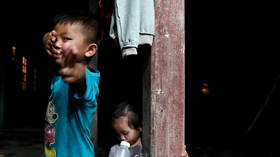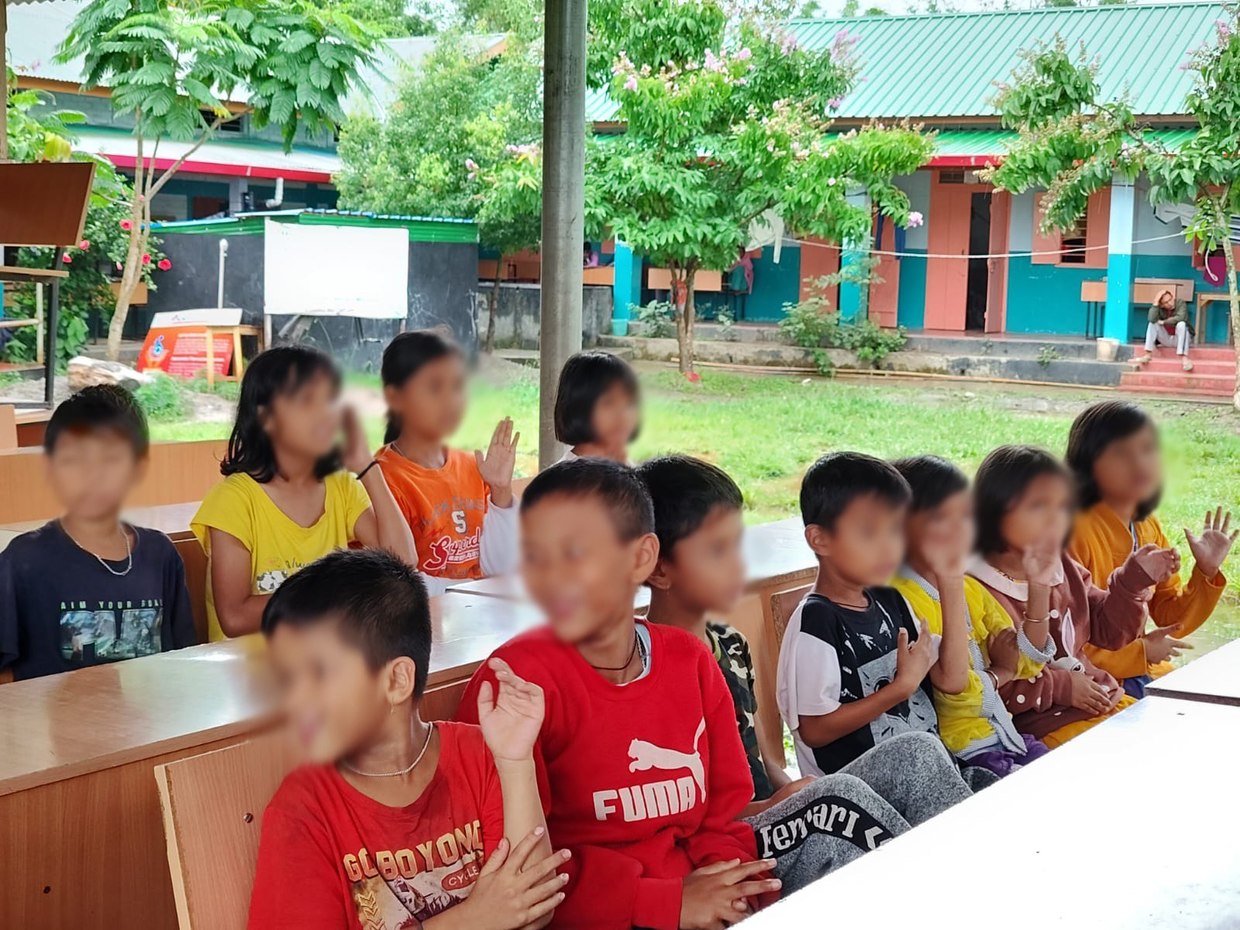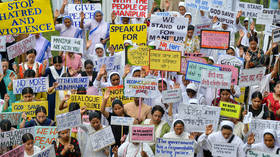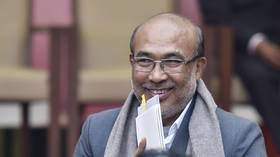‘He doesn’t have a home now. It was burned down by a mob’: Children from India’s Manipur bear the brunt of ethnic conflict

The ethnic violence in the northeastern Indian state of Manipur, now in its fourth month, has displaced approximately 15,000 schoolchildren. They are currently being accommodated in 337 relief camps, where they are receiving counseling and being observed by mental health professionals. These have tracked some disturbing trends, while the government says it’s hard at work to reduce ethnic tensions and prevent violence.
Manipur, which has a population of 3.2 million and shares a 398 km border with Myanmar – a large part of which is porous – is like an amphitheatre with the hills surrounding the Imphal valley. Meiteis, Nagas and Kukis are the three major communities and there are several other smaller tribes. Meiteis are the largest community with 53% of the population. They live in the Imphal valley. A large majority of them practices Hinduism. There are also Christians and Muslims (called Meitei Pangals) among them.
The hills make up the remaining around 90% of the state’s area. Nagas and Kukis are the two major tribal communities in the hills and most of them follow Christianity. Of the 60 Assembly constituencies in the state, 40 are in the Imphal valley and 20 in the hills. The violence broke out between Meiteis and Kukis on May 3 and is continuing. It has so far left around 150 people dead and over 60,000 others displaced.
Experts from the National Institute of Mental Health and Neurosciences in Bengaluru have been visiting the camps – many of which are located in dingy surroundings and lacking in basic amenities – in an effort to understand the depth of anxiety and depression among the children, many of whom have been in the camps for the past three months.

Yurembam Indramani, District Child Protection Officer of the District Child Protection Unit, Imphal West said children were found giving seemingly unrelated answers to questions until the officials noticed what triggered that. For instance, a 10-year-old from the hill district of Tengnoupal used to play football with other children from different communities and went to school with them. After the outbreak of violence, he is afraid of the hills where he was born and raised.
“The hills fill him with dread. Some other displaced children have a similar fear,” Indramani said, adding the child reacts to even the Meitei word 'yumnak', translating into 'surname'. “When I asked him his name in our Meitei dialect, he gave his first name. When I asked him further about his yumnak (surname), he said he doesn’t have a home now. It was burned down by a mob.”
The psychological scarring is so deep that the mention of ‘yum’, which is Meitei for ‘home’, instantly reminds the boy of the arson attack on his neighbourhood. Indramani narrated another anecdote to underscore how hatred is developing among the children. During a vocational computer class, he said that a handful of children aged 9-10 wrote that their former best friends have now become enemies.
But it’s not just the children from the hills who have been traumatized. Those who fled the Imphal valley – the central part of the state and the seat of power – are just as affected. “The mere mention of the plains makes some children go into a shell,” a government official said, on the condition of anonymity.
NewGlobe, an international education support group that has worked in several African countries and is now partnered with the Manipur government for a project titled ‘STAR Education’, is trying to keep these displaced children happy by organizing various activities in the relief camps after observing the depth of their trauma.
“We asked the children at a relief camp to write about five things that they like the most. Some boys, aged 8 or 9, wrote that they love guns and wanted them. They wrote that they wanted to learn how to fight,” said Amrita Thingujam, the managing director of STAR Education.
The elderly people in the camps regularly discuss the violence and this is also affecting the children, according to officials. Sandhyarani Mangshatabam, the programme officer of the State Child Protection Society, said the state government was trying to help the children through mental health professionals. “The child protection units of the Manipur Social Welfare Department are working with counselors of various childcare institutions to provide counseling to these children,” she stated.
As on August 7, altogether 15,203 displaced children were lodged in the relief camps and 14,297 of them have been linked to nearby government schools. While children are staying with their parents, there are at least 17 of them who lost either their father or mother in the violence. There are no children who lost both parents, officials said.
The warring Meitei and Kuki communities had no issues before the outbreak of the violence. Their children attended school and played together. There was no bullying. There are many mixed families, and the deepening ethnic violence is now passing on to them. In a testimony to the worsening situation, a helpless woman from one of the communities was asked to fend for herself by none other than her husband, who is a civil servant posted elsewhere and belongs to the other community. The woman remained stuck in one area and was eventually rescued along with her seven-year-old son, by the personnel of a paramilitary force after they received an SOS.
In another incident, a woman, who married a man from the other community, was burnt alive along with her seven-year-old son and another woman by a mob. The trio was travelling in an ambulance to take the child, who sustained splinter injuries during the crossfire, to a hospital, but the mob intercepted it and set it on fire, killing all three.
Sucheta Khumukcham, Zonal Education Officer (Imphal West), said the displaced children were highly stressed when they arrived, due to the extreme violence they had witnessed. Creative art is a medium for psychological healing, she said, so the authorities recently organised an art competition at a relief camp. The violence has partitioned the state on ethnic lines. The Kukis cannot enter the Imphal valley and similarly, the Meiteis cannot go out as arterial roads pass through Kuki areas in the hills.
The trouble started in September last year when the Manipur government began conducting a survey of reserve forests and wetlands to check deforestation, after observing that forest lands were increasingly being encroached upon by suspected immigrants from Myanmar (who are ethnically aligned with Kukis). The government says some of the encroachers were involved in poppy cultivation.
The Coordinating Committee on Manipur Integrity, a Meitei civil society organisation, has been vocal for some time on the drug menace in Manipur and submitted a petition to Prime Minister Narendra Modi. It claims that about 650 metric tons of opium are produced annually in Manipur’s hill areas inhabited by Kukis, and that these areas are protected and managed by over two dozen Kuki militant groups, which signed a suspension of operations agreement with the government.
Officials said there was no resistance when the encroachers were evicted from government land in Imphal valley and some hills where Nagas live. But when the drive continued in Kuki hills, the locals were apprehensive. They suspected it as an attempt by the government to grab their land.
The suspicion was strengthened when the Manipur High Court directed the state government in March to consider including the Meiteis on the Scheduled Tribes (STs) list. The land in the hills is protected for ST communities and the tribals viewed the court order as inimical to their land rights, as ST status to the majority Meitei community would make them eligible to buy land in the hills. So, on April 27, a mob in the Kuki heartland of Churachandpur vented its anger by burning down the venue of a scheduled programme of Chief Minister N Biren Singh. Then on May 3, full-scale violence broke out after a “tribal solidarity march” which was organised by a tribal students’ organisation across hill areas against the alleged move to grant ST status to Meiteis.The Indian government has been working to reduce ethnic tensions and prevent further violence in Manipur.
During a parliamentary debate on August 10, Prime Minister Narendra Modi assured people in the state that India was with them and that everyone would work together for the return of peace and normalcy. “Both the state and central governments are doing everything possible to ensure that the accused get the strictest punishment. I want to assure the people that peace will be restored in Manipur in the coming time,” Modi said.
On August 17, Manipur Chief Minister Nongthombam Biren Singh said in the interview with RT’s Chandrani Sinha that the situation in the state had been slowly returning to normal. The chief minister appealed for peace in the state: “I want to appeal to all my brothers as sisters, Meiteis and Kukis, or Naga, whoever [lives] in the state, we live together, just from the time immemorial, and we have to live together, and the misinformation and miscommunication should be sorted out.” Sing also noted that his government and the federal authorities have been working together to normalize the situation in Manipur.
By RT correspondent















